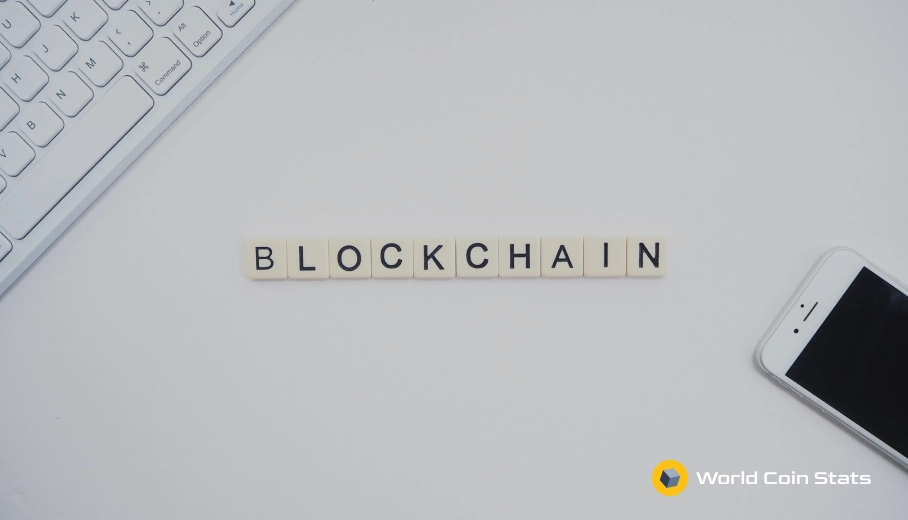What is Blockchain Bloating
Yes, blockchain technology suffers from bloating. And no, it’s not from eating too much junk food.
Blockchain bloat is a real problem with severe problems for any blockchain that it impacts, which is why it’s such an important topic.
We will cover everything you need to know about blockchain bloat in this article. On top of that, we’ll also answer some common questions related to blockchain bloat.
Blockchain Bloat Explained
Blockchain bloat is not a difficult concept to understand if you understand blockchain.
For those that don’t, blockchain technology works by storing all prior transaction data on a series of data blocks. These blocks are then “mined” by computers to process any new transactions.
Mining is simply adding more transaction data to the current blockchain.
However, this leads to a problem:
The blockchain contains a lot of data. Trillions upon trillions of bytes of data.
When that data becomes so much that blockchain transactions begin to slow down, then it is referred to as blockchain bloat.
It’s simple stuff.
Why is blockchain bloat bad?
Blockchain bloat is bad because it slows the transaction speed. If the bloat gets bad enough, then it can make the entire blockchain unusable.
You can’t have a usable blockchain network when it takes hours to add new data to the blockchain.
It can get worse than that, though. Some blockchain networks may increase mining fees if the blockchain bloat becomes too unmanageable.
Remember, miners have to spend fiat currency for their power bills, maintenance costs, and cooling expenses.
Increased mining fees and slow transaction times certainly wouldn’t be popular with users, especially when they occur at the same time.
Fortunately, software engineers and architects have developed solutions to blockchain bloat.
Does blockchain bloat impact all cryptocurrencies?
Yes and no, blockchain bloat can impact all cryptocurrencies that use blockchain technology.
However, it does require the cryptocurrency to become popular. An unpopular crypto will not have enough data for blockchain bloat to become a problem.
Well, it could become a problem on an unpopular crypto, but a competent software development team should be able to handle blockchain bloat at such a small level.
The only cryptocurrency that had a major problem with blockchain bloat was Bitcoin. Ethereum will also have problems with blockchain bloat at some point in the future.
All it will take is a few more years of Ethereum being a major cryptocurrency for blockchain bloat to become a problem. It also doesn’t help that Ethereum allows even more data on the blockchain with smart contracts and other coins.
Blockchain Bloat is a Good Problem
You might hear this discussed online – blockchain bloat is a good problem.
It sounds counterintuitive. How could a problem be a good problem?
Well, if so many people are using the cryptocurrency that the blockchain slows down, then that means the cryptocurrency has become wildly popular.
In the crypto community, a wildly popular crypto is a huge goal for many. It would be a watershed moment if many of the coins became so popular that they became slow.
We won’t get ahead of ourselves. We are a very long way away from any cryptocurrency becoming popular outside of hobby use.
And that’s not a bad thing. This gives developers plenty of time to develop solutions for the many problems that will surely plague cryptocurrencies in the future.
Blockchain Bloat – Solutions
Some cryptocurrencies, such as Bitcoin, have solved the blockchain bloat problem by increasing the size of the block itself. This solves the problem in a way, but it does lead to slower transaction times and increased mining fees.
It is a solution. It just isn’t a very viable solution.
There is a viable solution to blockchain bloat that some cryptocurrencies have adopted.
Sharding
In simple terms, sharding is breaking up the ledger onto different nodes. This eliminates bloat because it spreads the data across different nodes.
As mentioned earlier, Bitcoin passed on this solution, which did result in some problems with wallets syncing with the ledger. Things worked out mostly fine, though.
Other cryptocurrencies will likely take a different approach. It appears Ethereum will go with sharding as a solution to the bloat problem.
In our opinion, sharding seems like the only viable solution to blockchain bloat.
Will blockchain bloat destroy cryptocurrency?
No.
The media likes to claim that blockchain bloat will be the end of cryptocurrency as we know it.
That simply isn’t true.
Software engineering is all about finding solutions to problems, so it’s safe to say that software engineers will find a solution to the blockchain bloat problem.
Sharding appears like the best solution at the moment. Things change fast in software engineering, though. A better solution that completely revolutionizes blockchain as we know it could be around the corner.
Think of how much the internet has changed in the past 30 years.
You can apply that same level of technological change to the blockchain.
The future looks pretty good with that.
Has blockchain bloat destroyed a cryptocurrency?
No, blockchain bloat has not “destroyed” a cryptocurrency.
This brings us back to the point about the media saying blockchain bloat will be the end of cryptocurrency – it hasn’t been a huge problem so far.
Could it destroy a cryptocurrency in the future?
Possibly. It certainly has been a headache for the Bitcoin development team, but so far it hasn’t come close to bringing Bitcoin down.
As we mentioned in the previous section, software developers solve problems, so they will likely solve the blockchain bloat problem at some point in the future.
Final Words
We hope this article helped you understand a little more about blockchain bloating. It really isn’t a difficult concept to understand – it’s simply the point when so much data is stored on the blockchain that it slows down.
As for the media saying that blockchain bloat will bring down cryptocurrency?
It won’t happen, but stories like that have catchy headlines that get a lot of clicks.




